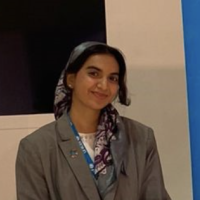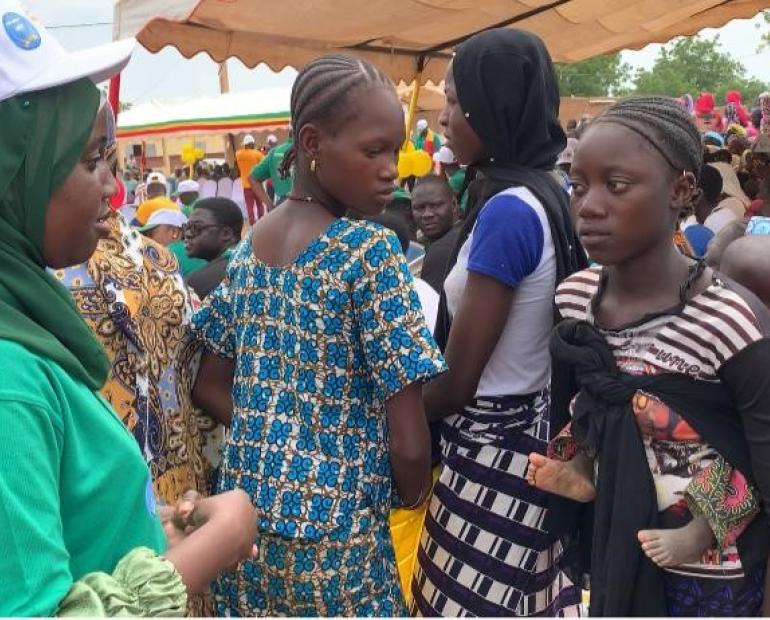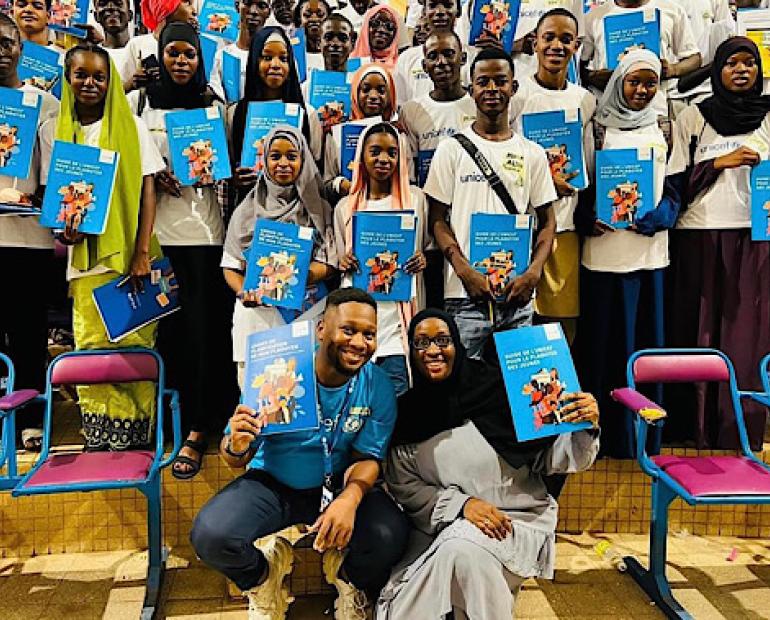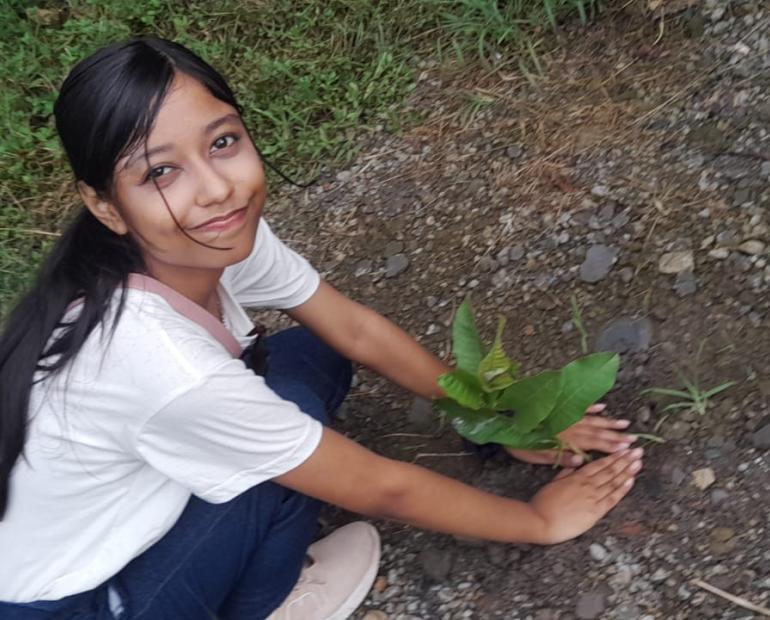
This January, I had the honor of signing my mandate with UNICEF Gulf and taking on the role of the UNICEF Youth Advocate to the United Arab Emirates (UAE). This is something I would’ve never dreamt of when I first started my work as a climate justice activist at the age of 15. Experiences like having witnessed floods that ravaged my hometown and community, to being excluded from conversations that impact me and millions of other young people, especially from the most vulnerable communities, shaped my activism and helped me set my mind to working on and advocating for climate justice.
Children and youth are the most effective champions for the issues that impact them, and they carry with them the knowledge and power to mobilize change around them. Realizing children’s rights and the importance of ensuring meaningful leadership of children and youth is critical to tackling big issues, such as the climate crisis. This is what I wish to achieve through my mandate as UNICEF Youth Advocate. I hope to work with children and youth in the UAE to build their capacity and ensure their leadership and engagement in climate policy and action as well as building resiliency in some of the social sectors that children and young people depend on the most, such as the education sector and the health care sector and transform them to address the climate crisis.
Attending the Abu Dhabi Sustainability Week 2023, which was held from January 16th-19th, was my first official mission as a UNICEF Youth Advocate. This engagement was critical because it was the first big event in the run-up to COP28 (the Conference of Parties), which the UAE is set to host early this December. I took up many tasks during my attendance; from talking at panels to dialoguing with key stakeholders such as ministers.
Personally, one of my favorite engagements was moderating the UNICEF Children’s Panel at the National Dialogue on Climate Ambition hosted by the Ministry of Environment and Climate Change. I spent quite some time preparing for this panel. I wanted to highlight to everyone in the room that no one is more capable and efficient in approaching issues that affect children than children themselves, and that climate change is one of the most pressing threats to children’s rights at the moment.
Children and young people are also leaders of transformative thinking, which is so important for us during times of distress, especially not to fall into doomism but to hold space to practice hope and re-imagination. To amplify this message, I did an activity with the panelists. I asked them “if you had a superpower to tackle the climate crisis what would it be and how would you use it?”. We got a wide variety of answers, from time travel to flying that captured the attention of the entire room and put them into a train of thoughts. I want to share one of these responses with you.
“I would like to have the power of invisibility so I can use it to walk into rooms where decision makers talk”, responded a 16-year-old panelist from the UAE. Let’s let that reply sink in.
As children and youth, we have been historically excluded from so many processes, especially around decision-making, even on issues that impact us the most. We have often been invited to participate just to tick off a box. While nearly half of the world's population is under 30, only 2.6% of parliamentarians are under 30 and the average age of our political leaders is 62. I don't think as young people we should have to chase the superpower of being invisible just to get a seat at the table.
At COP27 we celebrated our small wins in the text of the cover decision. Children were mentioned for the first time, along with youth, and recognized as agents of change in addressing and responding to the climate crisis. We were included in their process for designing and implementing climate policies and encouraging the inclusion of youth negotiators into party’s delegations. I hope that on the road to COP28 we can work on an accountability framework to ensure the implementation of this text, and to create actual tangible change in the lives of children and youth, in all their diversity.
There’s an observation I would like to make, it's a recurring thing I have experienced in several other events, we are the last item on the agenda. And there we stay witnessing the room shrink in half as the people who hold the most power leave us, talking amongst ourselves. You know, quite often this narrative is imposed on us that as children and young people are “voiceless” and we “need to be given a voice”. But here we stand, again and again, challenging that narrative. We are not voiceless, but unheard.
And finally, I don't think that the courage we hold is appreciated, because even after facing systems that hinder us, we continue to show up, continue to question and continue to show what a better world for the people and the planet could look like, with so much grace and power. The sea levels are rising but so are we. We are not yet defeated and our fight for climate justice, child rights, and intergenerational equity continues. I hope you join us because we need you now more than ever.






